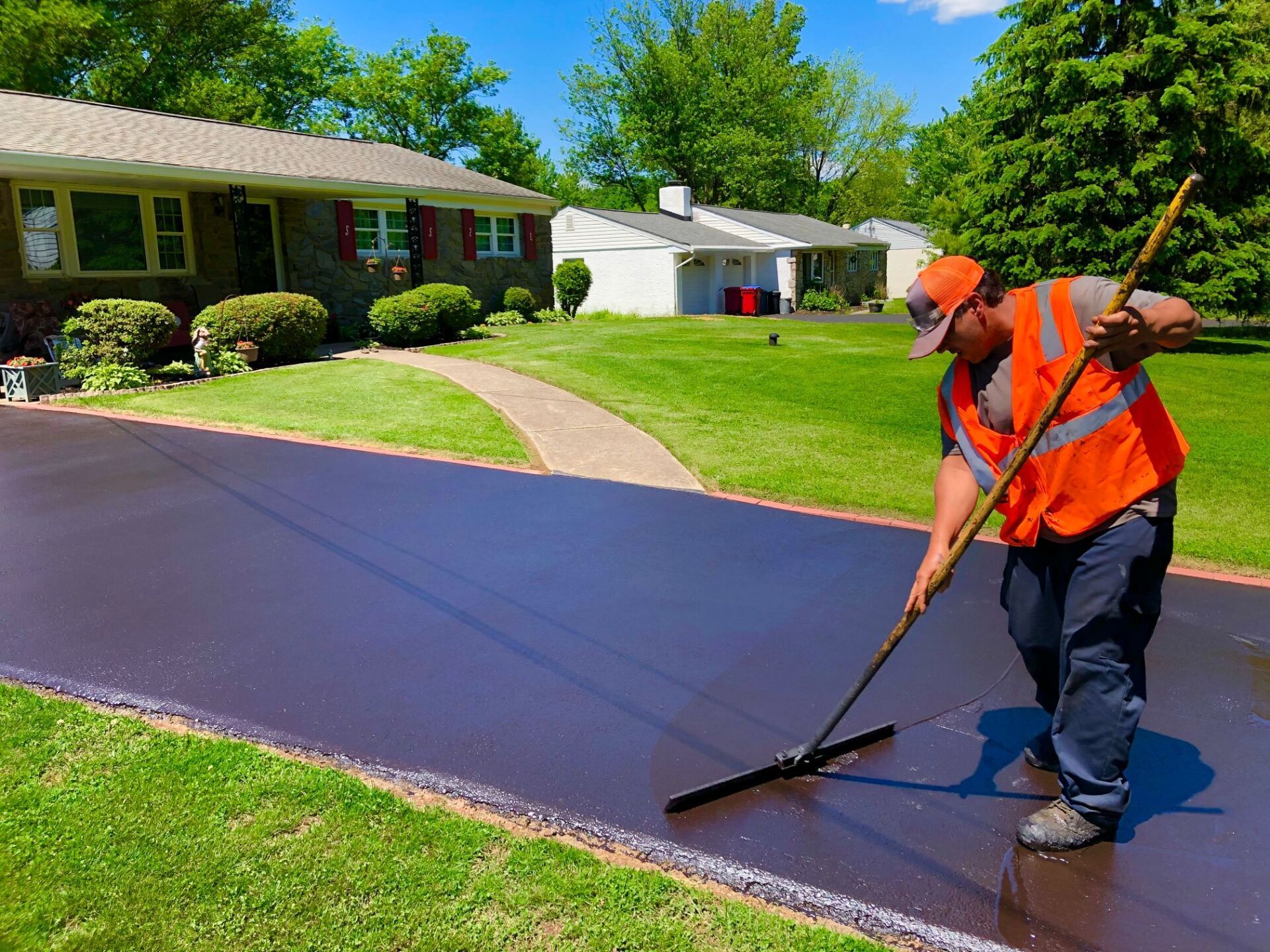Long-lasting Results: Asphalt Spot Repair Via Accuracy Sealing
Wiki Article
Cold Mix Asphalt Vs. Hot Mix Asphalt: Which Is Right for You?
:max_bytes(150000):strip_icc()/barricade-tape-sealed-driveway-big-56a583145f9b58b7d0dd3d87.jpg)
Structure Distinctions
Cold mix asphalt is generated by emulsifying the asphalt binder with water and an emulsifying representative before mixing it with accumulation. The warm mix asphalt production procedure includes warming the aggregate and asphalt binder separately prior to combining them at the asphalt plant.
Furthermore, cool mix asphalt tends to be less thick and much more versatile than hot mix asphalt. This versatility makes it much better fit for areas with higher levels of movement, such as driveways or roadways with hefty website traffic. In comparison, hot mix asphalt is understood for its high resilience and resistance to rutting and breaking, making it a preferred choice for highways and high-traffic roadways where longevity is critical.
Installment Process Differences
The process of installing chilly mix and warm mix asphalt shows noteworthy variations in their needs and treatments. Cold mix asphalt, being an extra adaptable product, can be applied straight from the bag or container onto the pocket or harmed location. It needs minimal preparation job, such as cleaning up the area and compacting the cool combine with hand tools. This makes it a hassle-free choice for quick and short-term fixes. In comparison, warm mix asphalt necessitates an extra sophisticated installation procedure. It includes warming the blend to heats prior to laying it down on an effectively prepared base. The prep work includes condensing the base, applying a tack layer, and using hefty machinery like pavers and compactors for a long lasting and smooth finish. As a result of the heating demands, hot mix asphalt installments are commonly accomplished by professionals with customized devices, making certain a more structurally audio and permanent outcome.Longevity and Longevity Elements
When thinking about asphalt options, sturdiness and longevity are crucial factors to review for enduring pavement efficiency. Warm mix asphalt (HMA) is known for its remarkable durability and long life.
In regards to longevity, HMA typically outmatches CMA as a result of its remarkable strength and resistance homes. HMA sidewalks have a longer solution life, requiring much less frequent fixings and upkeep, which can translate to set you back savings over time. Furthermore, HMA sidewalks are much more conveniently adjustable to meet certain project demands, further boosting their resilience.
Price Considerations
Taking into consideration the economic implications is an essential element when examining the selection in between warm mix asphalt (HMA) and cool mix asphalt (CMA) for sidewalk jobs. While the preliminary price of warm mix asphalt is commonly greater than that of cool mix asphalt, HMA usually provides a more cost-effective service in the long run due to its exceptional toughness and long life.In addition to product expenses, it's important to take into consideration the costs related to setup and maintenance when comparing HMA and CMA. HMA generally calls for specialized tools and skilled labor for proper installment, which can influence general job costs. Conversely, CMA is simpler to deal with and can commonly be used using simpler methods, potentially decreasing setup expenditures. Ultimately, the choice in between HMA and CMA need to take right into account not simply the initial price however also the lasting monetary implications to establish one of the most cost-efficient choice for the details pavement task.
Environmental Influence Comparison
Contrast of the environmental impacts between hot more info here mix asphalt (HMA) and chilly mix asphalt (CMA) discloses distinctive distinctions in sustainability helpful resources techniques. HMA manufacturing calls for high temperature levels, leading to raised power intake and greenhouse gas exhausts.Moreover, making use of CMA typically includes recycling existing asphalt pavement, promoting source preservation and reducing the quantity of waste sent out to garbage dumps. This reusing element even more enhances the sustainability of CMA compared to HMA. Overall, when considering the environmental influence, CMA becomes a much more ecologically sustainable choice as a result of its reduced energy requirements, reduced exhausts, and the possibility for recycling existing materials. By selecting CMA over HMA, roadway building and construction jobs can contribute favorably to ecological conservation initiatives.
Verdict
To conclude, the selection between cold mix asphalt (CMA) and hot mix asphalt (HMA) relies on various variables such as composition, installment procedure, toughness, longevity, expense, and ecological impact. asphalt patch repair. While CMA supplies a cost-effective and quick option for small repair work, HMA makes sure premium resilience and durability for hefty traffic areas. Think about these variables carefully to identify which kind of asphalt is the ideal selection for your paving needs

Thinking about the financial ramifications is a crucial element when Click This Link evaluating the option in between hot mix asphalt (HMA) and chilly mix asphalt (CMA) for sidewalk projects. While the preliminary price of hot mix asphalt is usually greater than that of cold mix asphalt, HMA commonly provides a much more cost-efficient solution in the long run due to its premium resilience and durability. cold mix asphalt.Comparison of the environmental influences in between hot mix asphalt (HMA) and cool mix asphalt (CMA) reveals distinctive distinctions in sustainability methods.In conclusion, the option between cool mix asphalt (CMA) and warm mix asphalt (HMA) depends on various elements such as structure, setup procedure, longevity, longevity, cost, and environmental effect
Report this wiki page